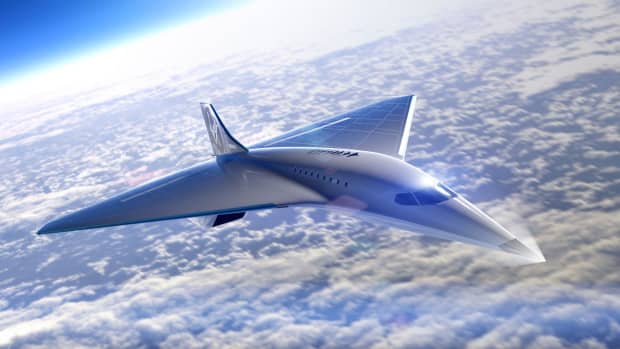This post was originally published on this site

Virgin Galactic Holdings Inc. released this illustration of its Mach 3 Aircraft design for high-speed travel in August.
AFP/Getty Images
Virgin Galactic Holdings Inc. produced no revenue for a second consecutive quarter Thursday, but said it expects to resume selling tickets to space next year after its long-awaited virgin voyage.
Virgin Galactic SPCE, +6.32% reported a loss of $76.9 million, or 34 cents a share, after losing 27 cents a share a year ago. The space-tourism company reported no revenue, down from $800,000 a year ago. Analysts on average expected a loss of 27 cents a share on sales of $1.1 million, according to FactSet.
Virgin Galactic has continued to push off its maiden voyage into space after selling initial trips for $250,000 apiece. In a filing for stock sales in conjunction with its previous earnings report three months ago, the company said it expects to fly its founder, Richard Branson, into space in the first quarter of 2021 as long as planned test flights go as planned, with commercial flights launching afterward.
Virgin did not give a specific date Thursday for Branson’s maiden trip to space, but did say that its New Mexico spaceport will host its first rocket launch this month.
“During the quarter we made good progress completing the final steps to prepare for VSS Unity’s first rocket-powered test flight from Spaceport America this November,” Chief Executive Michael Colglazier said in Thursday’s announcement. “This will be the first-ever human spaceflight conducted from New Mexico.”
Virgin Galactic was taken public late last year through a special-purpose acquisition company, or SPAC, named Social Capital Hedosophia Holdings that was launched by venture-capital investor Chamath Palihapitiya, who remains chairman of the company. Shares have more than doubled at times since, and have gained 63.5% this year, as the S&P 500 index SPX, +1.94% has increased 6.6% in 2020. Shares gained less than 1% in after-hours trading following Thursday’s announcement.
Virgin Galactic said Thursday that it has 600 customers, the same number of what it calls “Total Future Astronauts” that the company provided three months ago.


